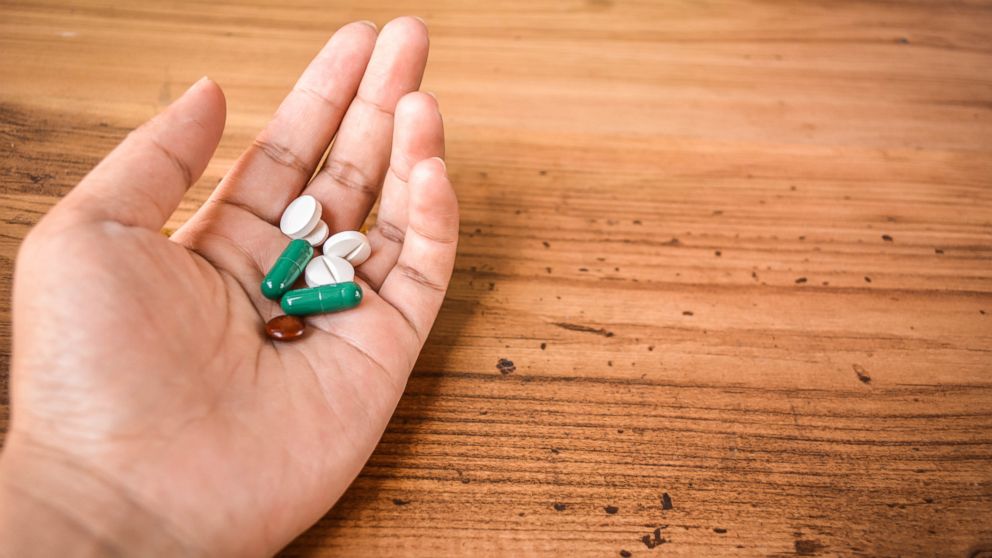The trending concern in schools: Opioid awareness and prevention
As the school year winds down, opioid prevention in schools is trending up.
One in 7 high school students in America reported they'd misused prescription opioids, like hydrocodone, in the past year, according to the Centers for Disease Control and Prevention.
In Ashland, Kentucky a community of just over 21,000 people along the southern bank of the Ohio River, the epidemic has hit a fever pitch.
Boyd County, where Ashland is located, saw 39 opioid-related deaths in 2017, which was an increase from 30 deaths in 2016, according to the local paper The Daily Independent.
In one year, local elementary schools found a total of 18 needles in their playgrounds.
To combat the epidemic, students from Ashland Middle School came up with a device to keep people safe from syringes discarded on the ground.
They designed a working prototype to safely pick up and dispose of syringes and created a database to alert the public where the syringes were found.
"We really noticed that this was a big problem in our community and our resource officer came to us and asked if we could figure out a solution," Isaac Crawford, an eighth-grader at Ashland Middle School and one of the 19 students who worked on creating the device, told ABC News.
On a recent trip to Washington, D.C., the students showcased their device to lawmakers in Congress. Senate Majority leader Mitch McConnell, from their home state of Kentucky, called it "inspirational."
The Ashland police chief saw the prototype and wants it in the hands of every officer "as soon as possible," Crawford said.
The students won a nationwide contest sponsored by Samsung/. The students used 3D printing technology to create the prototype.
The database locates where needles were found and then reports them to police and vice versa. The hope is that they can eventually turn it over fully to the police department.
The Naloxone Approach in Schools
As the opioid crisis hits America hard, states have taken a new approach to keeping students safe: putting naloxone in schools, training counselors on how to approach the opioid crisis, and taking a student first approach to education and understanding of the problem.
“We need to get [naloxone] out there, it needs to be available in places," Jon DeLena DEA Associate Special Agent in Charge for New England told ABC News. "The amount of lives it has saved is staggering.”
Maryland and Rhode Island have passed laws requiring schools to carry naloxone.
“Given the scope of the opioid epidemic in our area right now, it’s not outside the realm of possibility that any high school or middle school could have a student on campus who experiences an overdose," said Rhode Island state Sen. Gayle Goldin in a news release. "Every second matters."
Other states like Ohio and New Hampshire leave it up to the individual districts to decide whether to put naloxone in schools or not.
Dublin City Schools in Dublin, Ohio, with 17,000 students and 20 buildings, has had naloxone in all of its schools since 2016 in order to be "proactive and prepared."
The thought is to have school nurses be able to administer the antidote similarly to an EpiPen. It is something the National Association of School Nurses support.
"There's no downside to having it," Tracey Miller, the deputy superintendent of Dublin City Schools, told ABC News. "Only an upside."
DeLena said having naloxone in schools, at first, he was taken aback by it but realized it was forward thinking.
"It isn't so much they are worried about a student overdosing, they're worried about someone else on campus overdosing. Whether that's God forbid a teacher, parent at parent pick up or at a game. It could be anybody," he said. "We know this thing is so widespread, the more I thought about it, it's forward-leaning and the schools are trying to get ahead of it."
An early start – focusing on youth.
In New Hampshire, a state some consider ground zero for the opioid crisis, the Drug Enforcement Agency and community leaders are working with students to help combat the opioid crisis.
"Everything we've been doing in New Hampshire has been youth-focused because of the opioid crisis," DeLena said.
DeLena, with the help of the Recovery Centers of America and the Mark Whalberg Youth Foundation, put on the New Hampshire Youth Summit on Opioid Awareness - the first event of its kind. The event drew so much attention that Attorney General Jeff Sessions flew in to speak and a former MLB pitcher spoke about his addiction and recovery.
The response from students in attendance was positive.
"They said, 'We want to be a part of the solution. Don't just tell us not to do drugs - explain to us whats going on with it and listen to us,'" DeLena told ABC News.
DeLena recalled the first time he asked the question what the biggest problem in New Hampshire was and the response from one-fourth grader made his knees buckle.
"Heroin," that student said.
By getting kids involved in the discussion, DeLena thinks its the best shot to help the country overcome the opioid epidemic.
Editor’s note: An earlier version of this story stated that Samsung provided the 3D technology the students used in winning the contest. It has been corrected to reflect that the students used other 3D technology to create the prototype.




